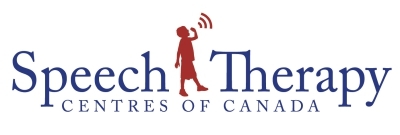Since Joyce (name has been changed to maintain anonymity), a woman in her early 50’s, suffered a mild brain injury in a car accident a year ago, she often has trouble thinking of the right words in conversation. “It makes me feel stupid when I know what I mean but I just can’t find the words”, she says. She finds herself withdrawing from conversation and even avoiding social events because of this difficulty.
Although word finding problems are common in stroke, traumatic brain injury, and dementia, they also occur in ordinary aging. Word finding is a retrieval problem. The person knows the word, may be having the “tip of the tongue” experience but cannot recall the word. In other words, the library is intact but the librarian is on vacation. Word finding problems are one of the most common reasons that adults are referred to a speech-language pathologist to see if they may require speech therapy.
Words are stored with multiple connections in the brain. For example, the word “cat” might be stored with words that begin with “c”, words that end in “at”, furry animals, pets, and boats (catamaran). To bring to mind a word that you have forgotten, you can go through the alphabet and think of what the word sounds like. You can also ask yourself questions about the word, such as “Is it abstract or concrete?”, “Where do I know it from?”, and “What other things are like it?” Consciously listing its attributes — how big, what colour — can help as well.
You can prepare for a social event or a meeting by priming the vocabulary that will be used in that situation. Take a little time beforehand and make a list of topics likely to be discussed and brainstorm the vocabulary that goes with those topics. The object is not to memorize the vocabulary or to think of every possible word you might need, which would be impossible. Rather, the aim is to warm up the part of the brain that stores the related words. It is especially helpful to review the more obscure terms as research has shown that learning more difficult vocabulary makes the more common words in a category easier to remember. However, reviewing the common words does not facilitate retrieval of the more obscure words. So, for example, if hockey is going to be a topic of discussion, reviewing the names of the minor players on a team will help you to remember the major players.
Joyce began preparing for social events by making lists of vocabulary for one or two topics. “I feel much more confident knowing that I have some things I’m ready to talk about”, she says, “but sometimes I still don’t think of the word I need until I’m halfway home again!”
Suzanne Bassett, M.A., M.H.Sc. S-LP(C)
Speech-Language Pathologist
The Speech Therapy Centres of Canada
www.speechtherapycentres.com
